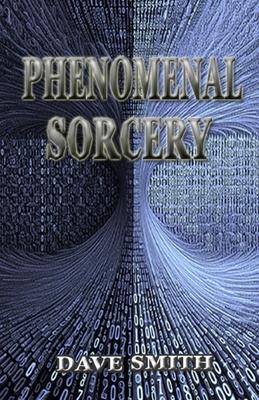There are certain aspects of sorcery that I believe are universal and transcend individual paradigms. Thus, some of the concepts in this book are also discussed in Quantum Sorcery and Voidworking, and in the essays on my SpikeVision blog. As with my former works, Phenomenal Sorcery is a blend of magic, science, and pop culture, for such is the nature of my own practice.
This paradigm is a form of sorcery, that is to say "Low" magic. It is certainly results-based, and thus would also likely be considered Chaos Magic as well. I use what works for me. I continually try new methods, whether of my own design or learned from the work of others. If a technique proves to be useful, then I keep it in my repertoire, otherwise I discard it. This process helps prevent stagnation. I certainly recommend this approach to practicing magic, even with regards to those who read my own work.
Magic is sometimes referred to as an art, even by some called the First Art. I am sympathetic to that point of view, but I consider it to be a discipline that is neither art nor science but may incorporate elements of both. Magic is subjective and mercurial. Anyone can learn its basic principles and begin to practice it, but like a musical instrument, one can spend a lifetime mastering its techniques. At the time of this writing, I've been doing so for 38 years and counting.
Eliphas Levi famously wrote this regarding the necessary skills for mastering the power of magic:
To attain the SANCTUM REGNUM, in other words, the knowledge and power of the Magi, there are four indispensable conditions - an intelligence illuminated by study, an intrepidity which nothing can check, a will which cannot be broken, and a prudence which nothing can corrupt and nothing intoxicate. TO KNOW, TO DARE, TO WILL, TO KEEP SILENCE - such are the four words of the Magus (Levi, 1896).
I'm good on three of these. The fourth, not so much.
This is a non-theistic form of magic. I do not discount the existence of Gods or spirits, and I long practiced forms of magic which call upon them. I have simply found that they are not necessary in the paradigms of that I have found to produce the best results for me. One of the comments that is occasionally made about my work is that I am too mired in a materialist worldview, and that I am somehow against the inherent mysticism and wonder that are a part of practicing magic. I can assert from my point of view that this is not the case. I simply find this wonder in the structure and behavior of the universe itself, and the contemplation of how a conscious mind can interface with it to perform these acts of wonder.
Existence is absurd, but that doesn't mean it can't be appreciated. More importantly, it can be influenced.
If this approach appeals to you, then read on!
